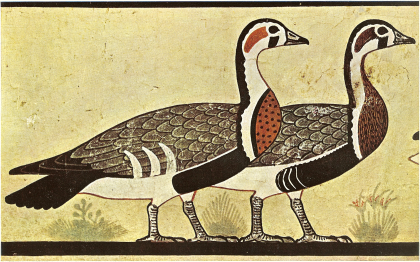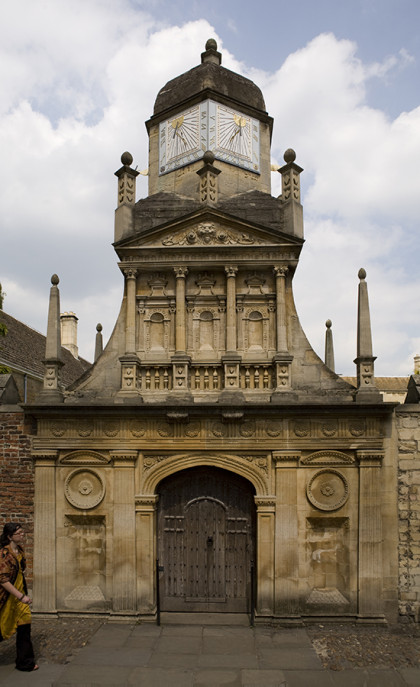Tomb of Itet, Meidum (Meidoum), museum of Cairo, scene: part of the frieze of geese. IVth dynasty. Remove not the landmark on the boundaries of the sown, nor shift the position of the measuring-cord; covet not a cubit of land, nor throw down the boundaries of the widow. The rut of trampling(?), the wear of time, he who wrongfully seizes it in the field, if(?) he snare by false oaths, is lassoed by the Power of the Moon. (The Instruction of Amenemope, chapter 6, trans. Francis Llewellyn Griffith) The fear … [Read more...] about Seeking God’s Wisdom in Strange Places
Wisdom literature
Gates and “Keys” (Scholar’s Compass)
Gonville and Caius College, Cambridge, Outside of the Gate of Honour from Senate House Passage Wisdom's instruction is to fear the LORD, and humility comes before honour. (Proverbs 15:33) Before destruction a man's heart is haughty, but humility comes before honour. (Proverbs 18:12) … [Read more...] about Gates and “Keys” (Scholar’s Compass)
Wisdom: Cosmic, Practical and Playful (Scholar’s Compass)
[W]hen he assigned to the sea its limit, so that the waters might not transgress his command, when he marked out the foundations of the earth, then I was beside him, like a master workman, and I was daily his delight, rejoicing before him always, rejoicing in his inhabited world and delighting in the children of man. (Proverbs 8:29-31) … [Read more...] about Wisdom: Cosmic, Practical and Playful (Scholar’s Compass)
Dining with Lady Wisdom (Scholar’s Compass)
I want to find where the maid in the street Is pouring her wine. I heard she takes you in and gives you the words You need said. If you'll be her brother, She'll kiss you like a sister. She'll even be your mother for now. (“Sister, Mother” – from the album Sixpence None the Richer; lyrics by Matt Slocum) … [Read more...] about Dining with Lady Wisdom (Scholar’s Compass)
Scholar’s Compass Navigating Wisdom: How I Discovered Wisdom Literature
Can a man scoop fire into his lap without his clothes being burned? Can a man walk on hot coals without his feet being scorched? - Proverbs 6:27-28 (NIV) Reflection While reading in the Proverbs, I encountered the above passage. It is in a section that deals with adultery. After re-reading that passage, I asked myself, “Why didn't the author quote from the Law?” There is a very clear statement about adultery in the Ten Commandments and a number of other laws that deal with this sin. Proverbs here makes no … [Read more...] about Scholar’s Compass Navigating Wisdom: How I Discovered Wisdom Literature




